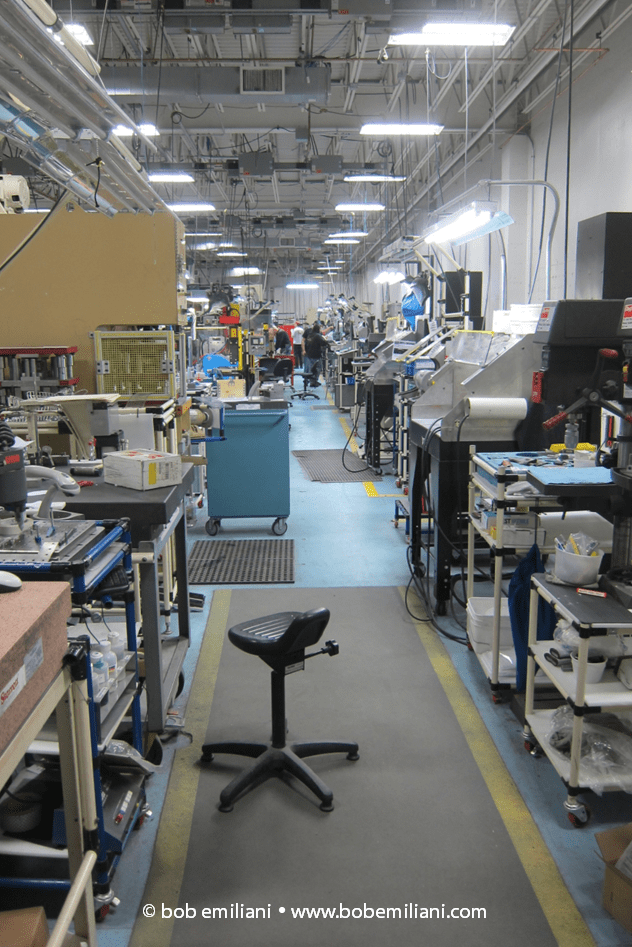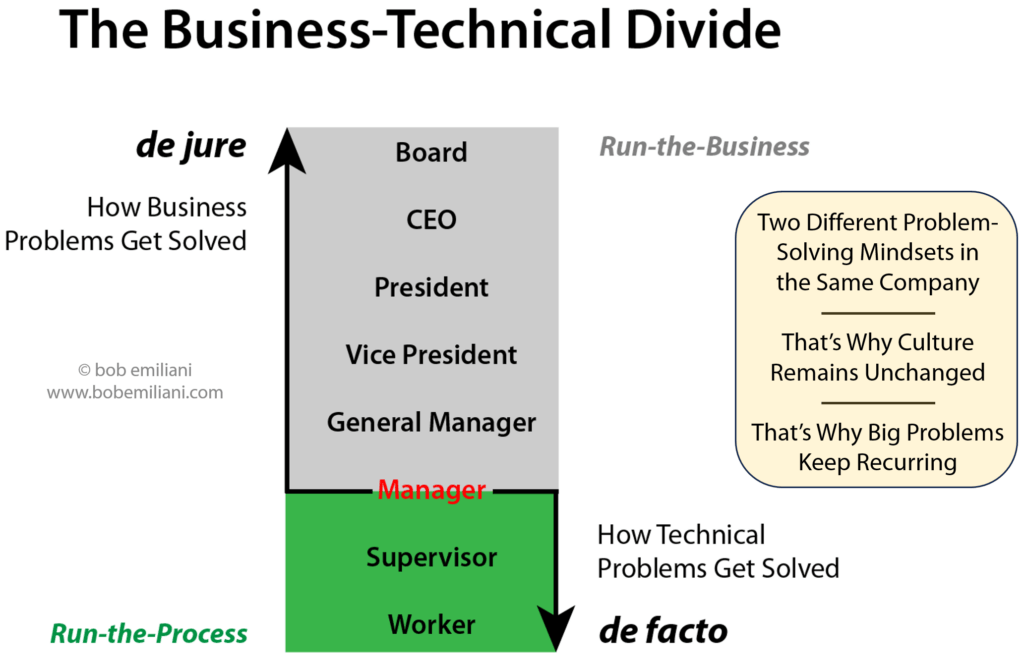
“The genba is the truth.”
That is what Japanese kaizen consultants teach. They say this repeatedly in a deliberate effort to reorient people’s thinking away from the deeply-rooted business ideology that numbers are the truth. If we recognize the genba as the truth and make improvements there via kaizen, the numbers will follow — they always follow. The kaizen consultants know this because they have experienced that outcome hundreds of times or more, and I too know it as well from my own firsthand experiences.
The business ideology of classical management is firm in its preconception that the genba is the source of costs — plant, property, equipment, labor, material, etc. Business leaders persistently fail to see the genba as a source of profits, not just in whatever product or service that is produced, but as additional profit that comes from continuously reducing costs, improving quality, reducing lead-times, and improving safety via kaizen. Business leaders further fail to see the genba as a source of ideas and innovation for process improvement as well as product improvement and new product development.
The business ideology, rooted in classical and neoclassical economics and status, rights, privileges, aesthetics and related preconceptions, demands that business problems be solved in ways that are different from how one solves technical problems at the genba. This, despite the fact that scientific thinking can be applied to all types of work from CEO to the receptionist. The reality is that leaders at any level, but especially at the C-level, reserve the right to solve problems however they see fit (de jure, meaning “by right”) — usually, but not always, in the absence of scientific thinking. Middle managers and those below them, especially workers, must solve the problems they encounter — technical problems — by facts (de facto), not by right because they have no such rights.
This difference produces the “Business-Technical Divide,” which I first described in my 2018 book, The Triumph of Classical Management Over Lean Management” (p. 287). It is a divide that is narrowed or closed only when leaders are willing to challenge their preconceptions — not by reading about it, but by participating in genba kaizen.
The business-technical divide creates a company that is divided in how it goes about solving problems — independently of one another — when in fact business and technical problems are closely related. Everyone working in the lower levels of an organization knows many examples of a leader’s decision that did not make sense to them. That is because the business problem was solved by right, not by facts, and almost certainly independent of what’s going on at the genba. The conflict between scientific and business ideological understanding of truth leads to conflict between people and departments, generally not resolvable, worker distrust of management, and management distrust of workers — and likely customer distrust of the company (think, Boeing).
Unfortunately, getting top business leaders to abandon their archaic preconceptions and adopt the new preconceptions that kaizen consultants teach people through hands-on learning experiences is nearly impossible (click here and here to learn why). The consequence is that the numbers (metaphysical or abstract reality) remain the truth while the genba (material realm of reality based on sensory experience) is nothing more than the place where people produce things at costs that, from the CEOs perspective, are never low enough. That is how employees lose their jobs to outsourcing and offshoring, or suffer from low wages or insufficient increases in wages and benefits.
The business-technical divide has huge impacts on people’s lives and livelihoods — employees, suppliers, customers, investors, communities, and even competitors. Of course, business schools are no help in this matter. Professors are almost always career academics with lots of knowledge of theory but zero knowledge of the genba. And those that do have work experience typically focus their teaching on the metaphysical concerns of C-level executives — strategy, finance, marketing, etc.
So what can we do? Get experience in genba kaizen and become a (secular) evangelist for genba kaizen (versus other methods or tools), and don’t give up. Our future could depend on learning the truth.

